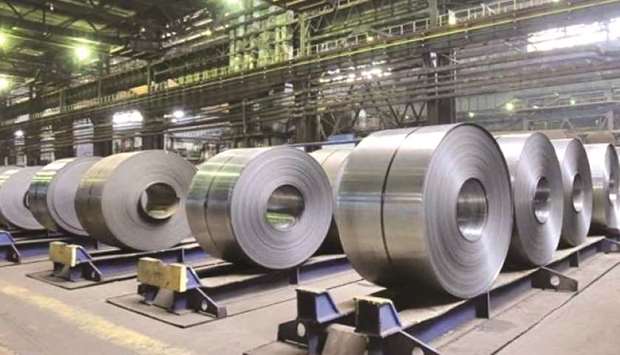The European Union said it would prolong for two-and-a-half years trade protection for EU-based steel manufacturers resulting from the controversial US tariff on imports of the metal.
The EU plans to maintain the import limits until July 16, 2021, saying it has concluded definitively that the 25% levy on foreign steel imposed last March by US President Donald Trump on national-security grounds caused worldwide shipments of the metal to be diverted to Europe.
The US levy “aggravated” pressure on European steel producers that were already facing increased shipments to the EU by foreign competitors, the Brussels-based European Commission, the 28-nation bloc’s executive arm, said in an e-mailed statement on Friday.
“The EU steel industry has not yet fully recovered from the global steel crisis,” the commission said. “It is still exposed to further increases of imports and ensuing downward pressure on prices.”
The move underscores the domino effect caused by Trump’s protectionism and marks a victory for the European steel sector, which had pressed for import restrictions to counter the risk of a slump in domestic prices, over EU carmakers, which as users of the metal had argued against trade barriers.
The commission on Friday notified the World Trade Organization of the plan to prolong the EU “safeguard” measures, which were introduced provisionally in July.
They involve a 25% tariff on EU imports of more than 20 types of steel ranging from stainless hot-rolled and cold-rolled sheets to rebars and railway material when the shipments exceed the average over the past three years.
Some tweaks are planned to the provisional limits, according to the commission, which opened a safeguard investigation in late March 2018 and faced a February 1 deadline to reach final findings.
The definitive measures will include “some variances in order to preserve traditional trade flows,” it said. “For example, the main supplying countries will benefit from individual quotas based on their own historical imports.”
In total, 26 types of steel will be covered by the EU’s definitive measures, according to the commission.
That compares with 23 product categories under the provisional system and 28 within the scope of the probe.
The 28 products covered by the inquiry together account for around 40% of the EU’s annual iron and steel imports.

The European Union plans to maintain the steel import limits until July 16, 2021, saying it has concluded definitively that the 25% levy on foreign steel imposed last March by US President Donald Trump on national-security grounds caused worldwide shipments of the metal to be diverted to Europe.
